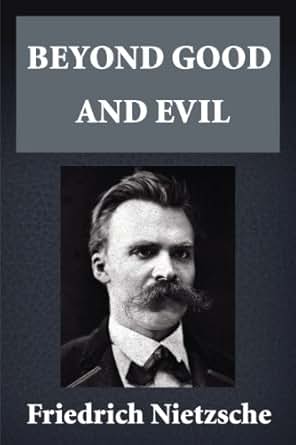

He has become hard and aggressive after living for so long in such inhospitable terrains.

However, when his friends arrive, they don't recognize him. We begin to see the world not in terms of just linear, black and white or binary terms but as a more complex, multidimensional entity, where sometimes contradictory concepts seem to coexist.īeyond Good and Evil is divided into nine chapters with an epilogue entitled “Aftersong – From the High Mountains” a long narrative poem in which the narrator calls upon his friends to join him on the mountain top. These and other such concepts are a bold and revolutionary way of looking at the way human beings reflect, act and justify their actions. Nietzsche then goes on to propose a new way of thinking that goes beyond such concepts like “good” and “evil.” The will in turn is subject to a shifting and eternally changing viewpoint, based on the power and status of those who operate it. Hence, the meaning and interpretation of words really depend on the will that chooses to manipulate them. Wars have been fought, people have been silenced, disease and destruction have been let loose based on what is considered “good” by certain countries and people in power. For instance an abstraction like “good” could mean anything depending on who is using it. He propounds the theory that ideals are not fixed but change over time, often dramatically, and end up becoming the exact opposite of what they originally were. In this book, Nietzsche takes the position that our subservience to fixed perspectives that are forced on us by our language and our ideals make us incapable of perceiving reality. Beyond Good and Evil, by Friedrich NietzscheĪ searing indictment of concepts like “truth” and “language” Beyond Good and Evil, by Friedrich Nietzsche is a deeply thought provoking book that forms one of the keystones of modern thought and politics.


 0 kommentar(er)
0 kommentar(er)
